Travel to Africa is experiencing a massive boom, driven by business opportunities and the allure of rich cultural and historical sites. Thankfully, digital transformation has streamlined the process of securing travel authorization. The electronic visa, or eVisa, is a mandatory entry document that you can obtain entirely online, bypassing the time-consuming ritual of visiting an embassy or consulate.
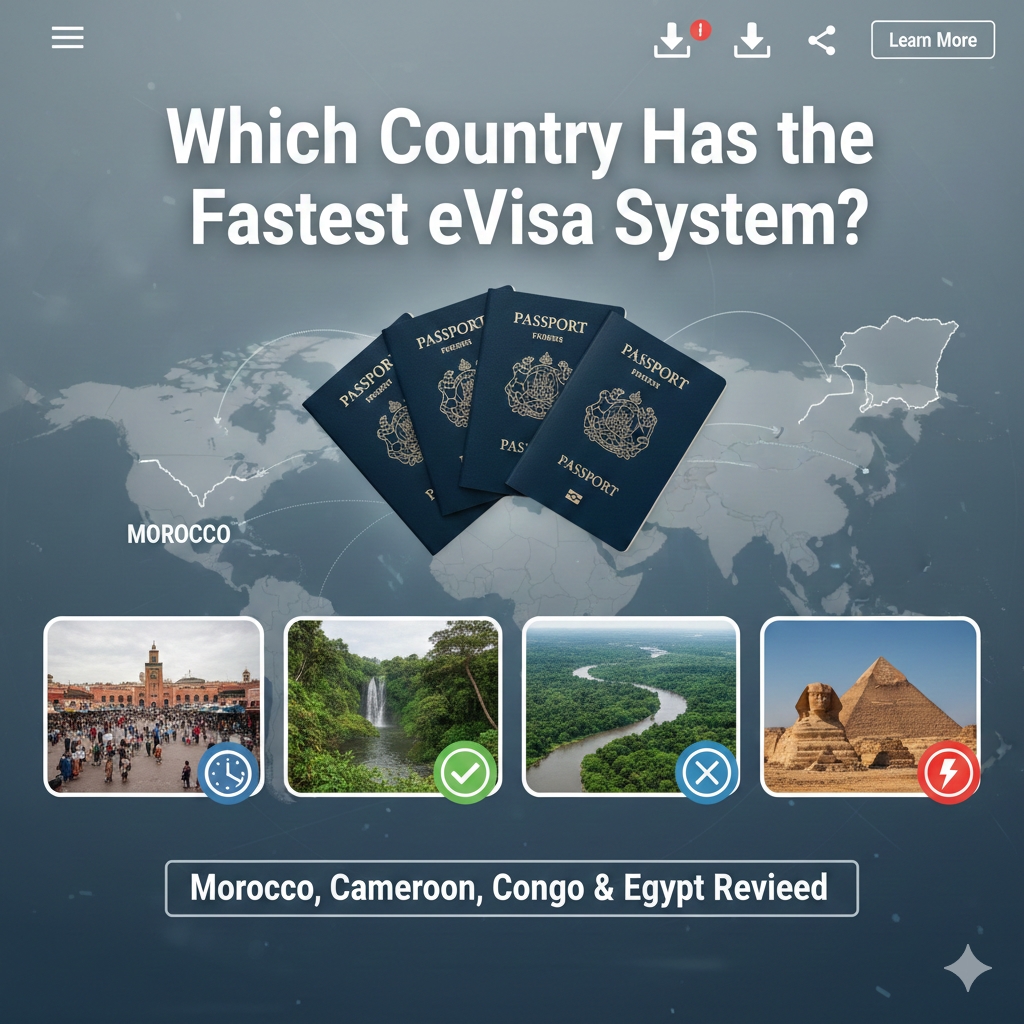
We’re putting four major African destinations under the microscope—Morocco, Cameroon, the Republic of Congo (Brazzaville), and Egypt—to determine the clear winner in the race for speed and digital efficiency.
Why Modern Travelers Prioritize eVisa Speed and Efficiency
In today’s fast-paced world, the wait time for travel documentation is often the most significant source of stress. Speed in visa processing is not merely convenient; it is often a necessity driven by specific travel demands.
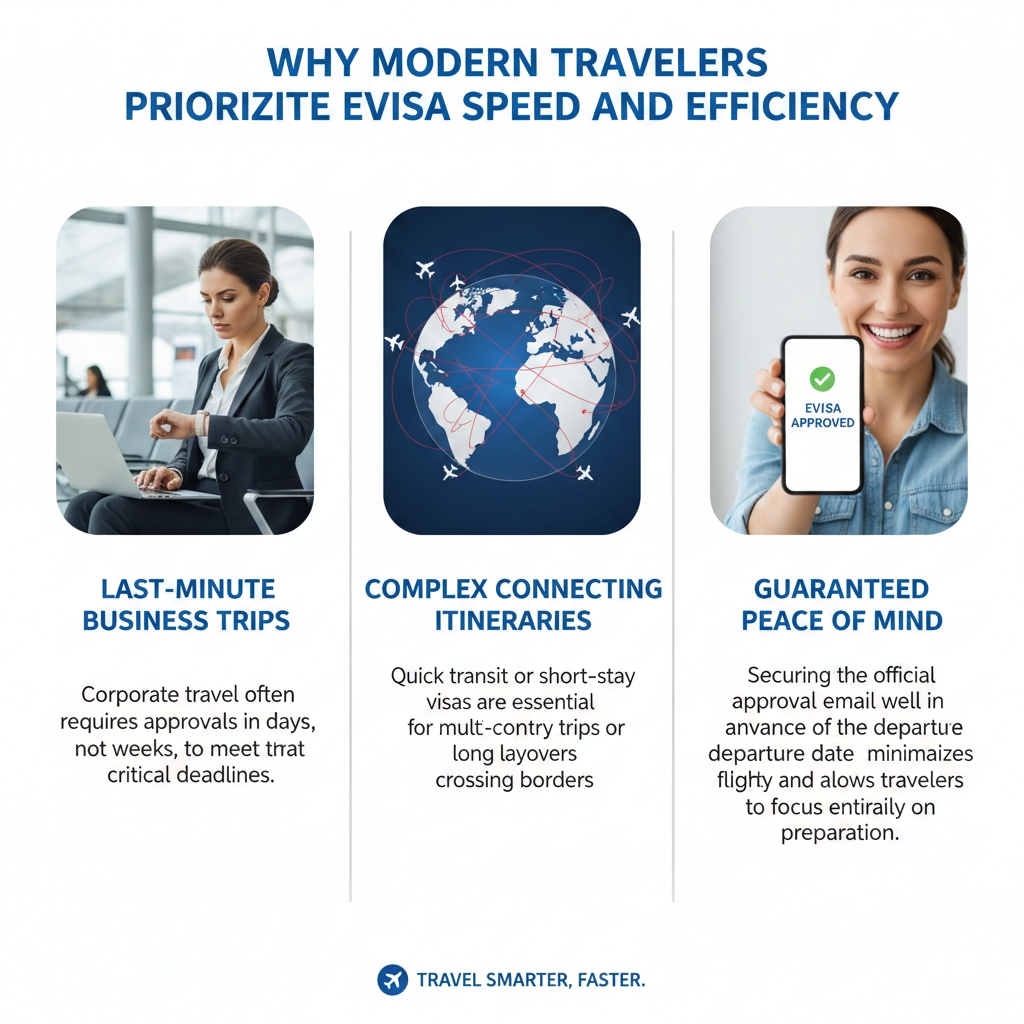
Last-Minute Business Trips: Corporate travel often requires approvals in days, not weeks, to meet critical deadlines.
Complex Connecting Itineraries: Quick transit or short-stay visas are essential for multi-country trips or long layovers crossing borders.
Guaranteed Peace of Mind: Securing the official approval email well in advance of the departure date minimizes pre-flight anxiety and allows travelers to focus entirely on preparation.
An eVisa acts as a digital travel authorization linked directly to your passport, usually delivered as a verifiable PDF file via email. While the application is 100% online, the official processing times can vary drastically based on the government’s internal capacity and technology.
The Crucial Benefits of Choosing the eVisa Route
Beyond simple speed, opting for an electronic visa over traditional embassy processing provides several definitive advantages for international travelers:
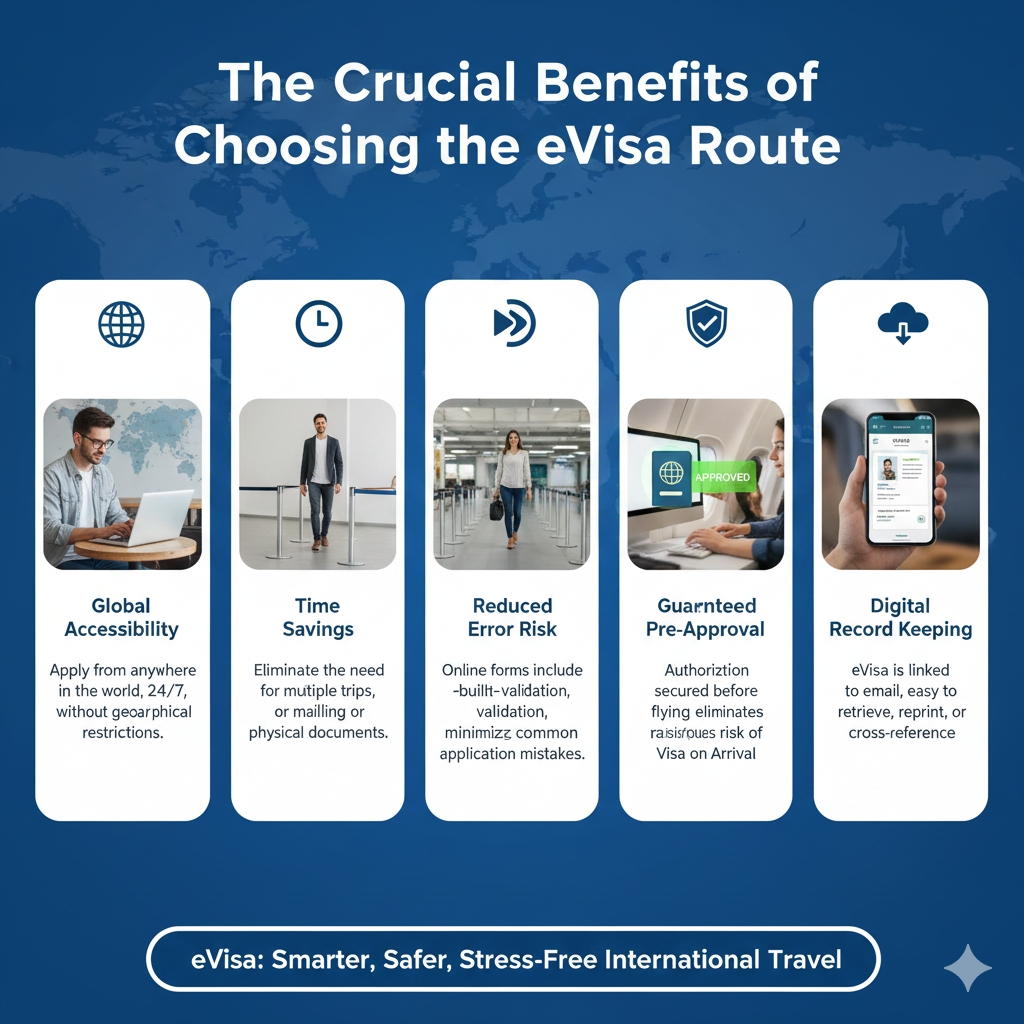
Global Accessibility: Apply from anywhere in the world, 24/7, without geographical restrictions related to physical embassy or consulate locations.
Time Savings: Eliminate the need for multiple trips to a consulate, queuing, or mailing physical documents, saving substantial travel time and effort.
Reduced Error Risk: Online forms often include built-in validation checks, guiding applicants to provide necessary information and correct formatting, minimizing common application mistakes.
Guaranteed Pre-Approval: Knowing your travel authorization is secured before flying eliminates the anxiety and inherent risk associated with the Visa on Arrival (VOA) process.
Digital Record Keeping: The eVisa is permanently linked to your email and typically stored on a government server, making it easy to retrieve, reprint, or cross-reference if necessary.
What Exactly is an eVisa Fee A Breakdown of Digital Processing Costs?
The Morocco eVisa fee is the compulsory financial charge levied by a nation’s government for the administrative work of processing an electronic travel authorization application. This total cost is generally composed of multiple transparent components.
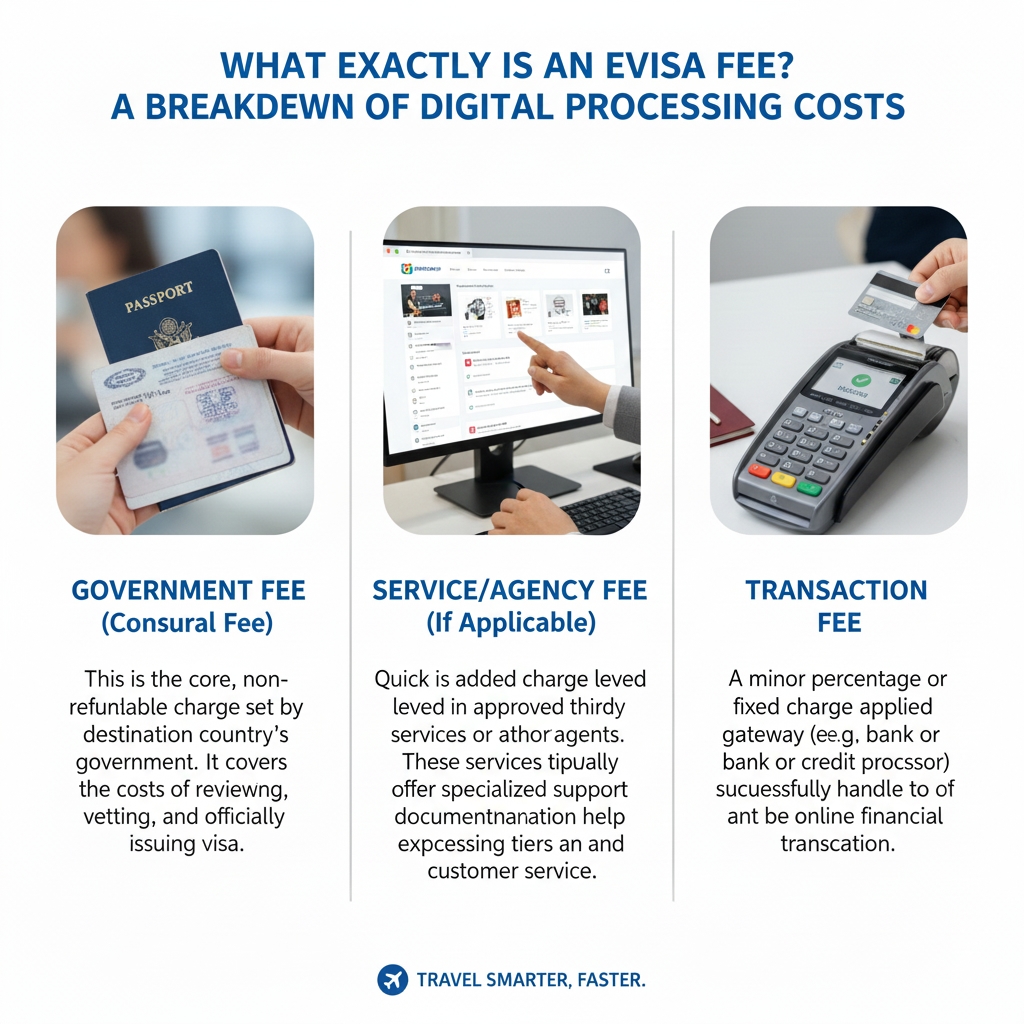
Government Fee (Consular Fee): This is the core, non-refundable charge set by the destination country’s government. It covers the costs of reviewing, vetting, and officially issuing the visa.
Service/Agency Fee (If Applicable): This is an added charge levied by approved third-party services or authorized agents. These services typically offer specialized support, documentation help, expedited processing tiers, and customer service.
Transaction Fee: A minor percentage or fixed charge applied by the payment gateway (e.g., bank or credit card processor) to successfully handle the online financial transaction.
Morocco eVisa The Seamless Digital Passport to the Kingdom
Morocco’s system, often accessed via the ‘Access Maroc’ platform, is heralded for its simplicity and speed. It offers eligible international travelers a fast track to authorization for short stays, skipping traditional paper applications entirely.
Defining the Morocco eVisa and Its Categories
The Morocco eVisa is designed specifically for short-term entry and has straightforward categorization:
Tourist eVisa: Granted for typical leisure activities, sightseeing, family visits, and attending cultural events.
Business eVisa: Issued for short-term professional engagements, including meetings, conferences, commercial negotiations, and trade missions (it is not valid for long-term employment).
Morocco eVisa Document Checklist and Processing Tiers
Morocco requires minimal documentation, which contributes significantly to its swift processing capability.
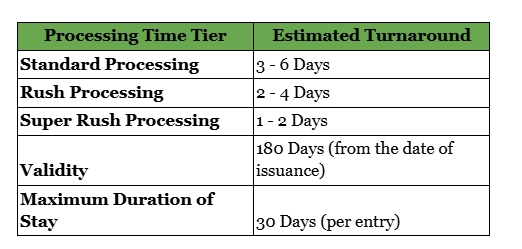
Cameroon eVisa Understanding the Rigorous and Detailed Application
The Cameroon eVisa Application facilitates digital entry for various purposes and stands out for its comprehensive approach to vetting applicants, offering options for short and long-term stays directly through the online system.
Defining the Cameroon eVisa and Available Stay Options
Cameroon’s system utilizes detailed visa categories, ensuring the authorization precisely matches the traveler's purpose.
Transit eVisa: For travelers using Cameroon as a layover to an immediate onward international destination.
Short-stay eVisa: Designed for tourism, short business visits, or quick non-immigrant visits.
Long-stay eVisa: Caters to extended stays, such as family reunification, long training programs, or specialized business projects.
Cameroon eVisa Document Checklist Beyond the Basics
Cameroon’s application is known for being thorough, often demanding more supporting documents than its peers to verify the trip’s purpose and the traveler’s means.
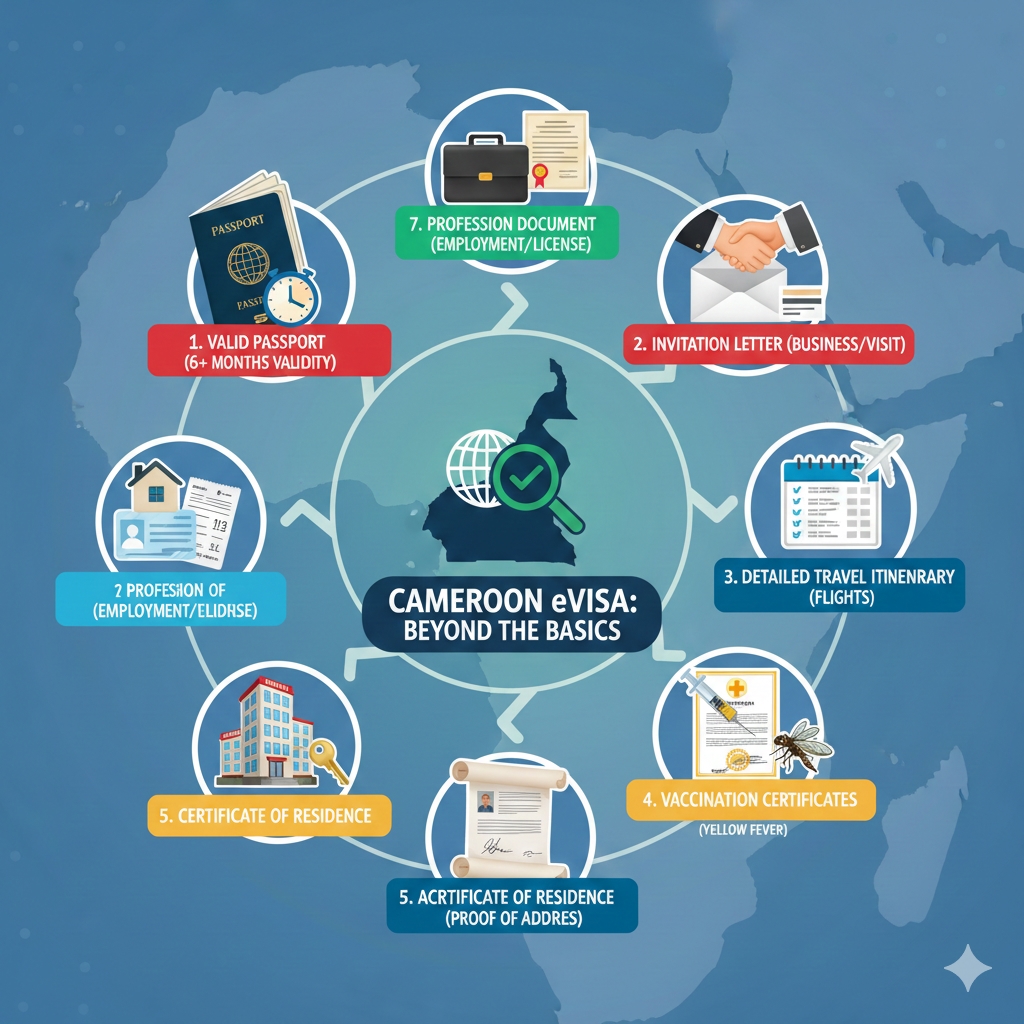
Key Documents Required:
A valid passport with a minimum of six months validity.
An invitation letter (required for business and visits).
A detailed travel itinerary (including flight reservations).
Vaccination certificates, especially the Yellow Fever certificate.
A certificate of accommodation (firm hotel reservation or a legalized host letter from a resident).
A certificate of residence of the applicant (proof of permanent address or residency).
A document to evidence the profession of the applicant (e.g., employment letter or business license).
Cameroon eVisa Processing Speed and Stay Duration Summary
Despite the extensive documentation required, Cameroon provides multiple options for expedited processing.
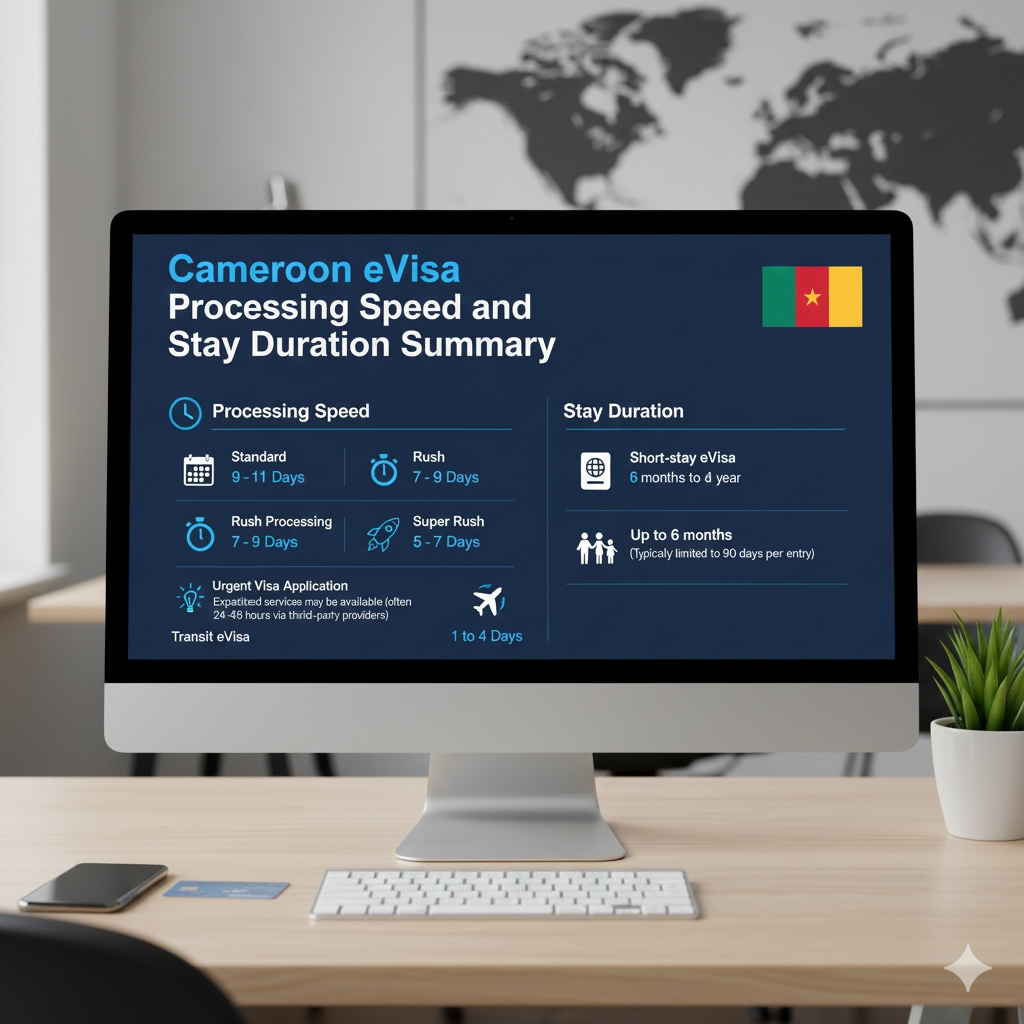
Republic of Congo Brazzaville eVisa Navigating the 'Flying Visa'
The Republic of Congo (ROC), often referred to as Congo-Brazzaville, operates a digital system that categorizes its entry authorizations as "Flying eVisa," which can sometimes be confusing for newcomers due to specific internal classifications.
Defining the Congo eVisa and Its Unique Categories
The ROC eVisa system groups purposes of travel under specific authorization names:
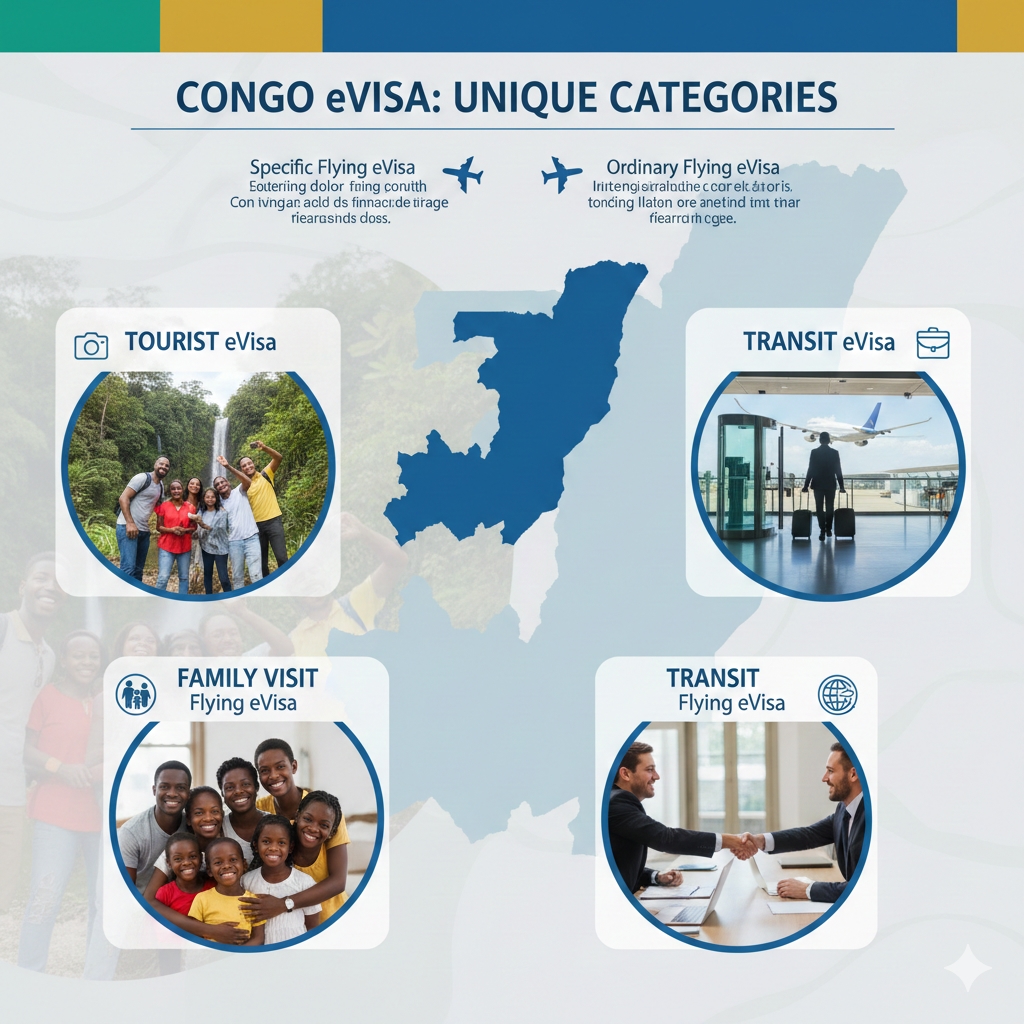
Specific Flying eVisa
Ordinary Flying eVisa
Tourist eVisa: For general leisure and sightseeing.
Business eVisa: For commercial activities and meetings.
Transit eVisa: For passing through to an onward destination.
Family Visit Flying eVisa: For visiting close relatives residing in the Republic of Congo.
Congo eVisa Processing Times and Stay Limitations
Advance planning is crucial for the ROC, as Congo processing time can be among the longest reviewed.
Documents Required:
A valid passport (minimum six months validity and two blank pages).
Completed visa application form.
Recent passport-sized photographs.
Proof of travel arrangements (flight tickets).
Accommodation proof (hotel booking or invitation letter).
Evidence of financial sufficiency (proof that you can support your stay).
Invitation letter or business correspondence (if applicable).
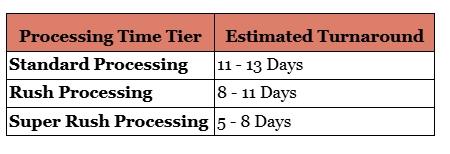
Egypt eVisa The Simple Tourist Path to the Ancient Pyramids
Egypt’s eVisa system is one of the most recognizable and widely used digital platforms globally, primarily catering to the massive influx of tourists heading to the country’s ancient landmarks.
Egypt eVisa Processing Time and Entry Options Explained
The Egyptian eVisa is usually restricted to a single primary category—the Tourist eVisa—but offers flexibility in the number of entries allowed.
eVisa Type Available:
Tourist eVisa: The standard and most common eVisa type offered for standard applications, covering general leisure travel.
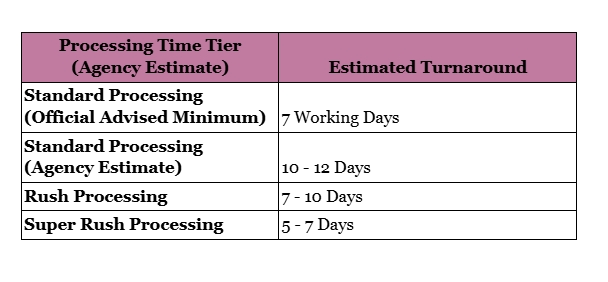
When Speed is Paramount The Urgent eVisa Explained?
The Egypt Urgent Visa processing option, often labeled as Rush, Super Rush, or Express, is a crucial service for travelers requiring rapid documentation due to last-minute travel plans, emergency needs, or tight connection schedules.
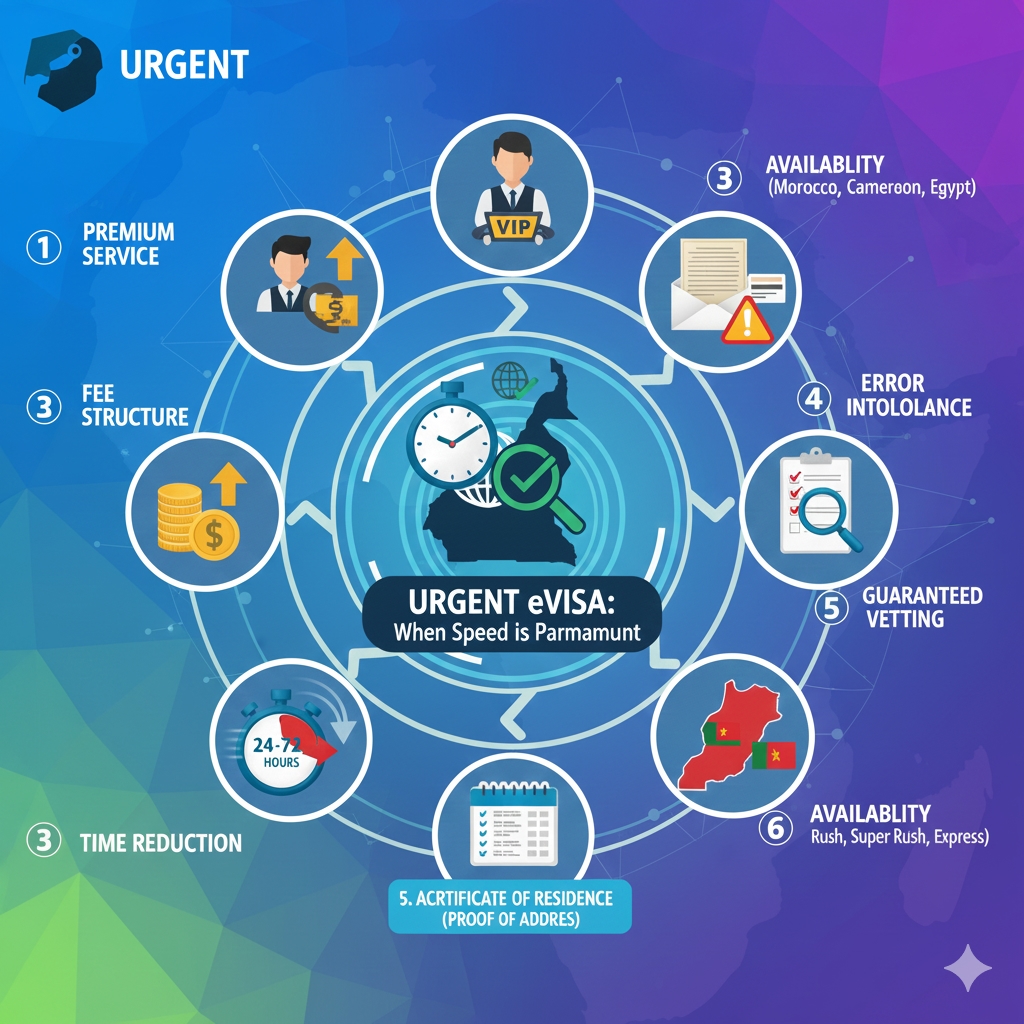
Key Characteristics of Urgent eVisa Processing:
Premium Service: It is a dedicated, prioritized track separate from the standard application queue.
Fee Structure: An additional, significant fee (expedited surcharge) is mandatory, making the application substantially more expensive than the standard rate.
Time Reduction: Drastically cuts the waiting time, often reducing the standard processing from weeks to 24 to 72 hours (e.g., Morocco’s 1-2 day turnaround).
Error Intolerance: Requires the application and all supporting documents to be 100% accurate and complete upon submission; any error or missing document voids the urgent status and delays the process.
Guaranteed Vetting: Although faster, the application still undergoes the same security and background vetting as a standard application.
Availability: Offered by Morocco, Cameroon, and Egypt, though specific terminology (Rush, Super Rush, Urgent) varies by country and platform.
What You Must Know About Refunds and Rejection
Beyond speed, applicants need to understand the underlying policies that govern their application, particularly the outcomes of rejection or the ability to secure a refund.
Refund Policy: In nearly all international eVisa systems, the core Government Fee is charged for the processing of the application, not the outcome. Therefore, this fee is overwhelmingly non-refundable, even if the visa is ultimately rejected. Service fees paid to third-party agencies may be refundable, depending on their individual terms.
Rejected Rate and Common Causes: Official rejection rates are rarely publicized. However, the consistent reasons for rejection across all four nations typically include:
Incomplete or incorrectly filled application forms.
Inconsistencies between the application data and the passport bio page (e.g., name spelling).
Blurred, illegible, or low-resolution document scans (especially the passport photo).
Failure to provide mandatory supporting documents like accommodation proof or invitation letters.
Is it Possible to Stay Longer eVisa Renewal and Extension?
Generally, eVisas are issued for short, fixed stays and are not designed to be renewed or extended digitally.
Initial Intent: The eVisa confirms entry permission based on a short-stay plan.
Post-Arrival Process: Any extensions or renewals must be requested after arrival directly from the respective national immigration authorities (e.g., the General Directorate of National Security in Morocco). This process is never guaranteed and frequently involves substantial in-country paperwork and fees.
Which Guarantees Smoother Border Entry eVisa vs. Visa on Arrival (VOA)?
For many eligible travelers, both an eVisa and a Visa on Arrival (VOA) might be options. While VOA is available at major entry points for countries like Egypt and Cameroon, the pre-approved eVisa is virtually always the superior choice.
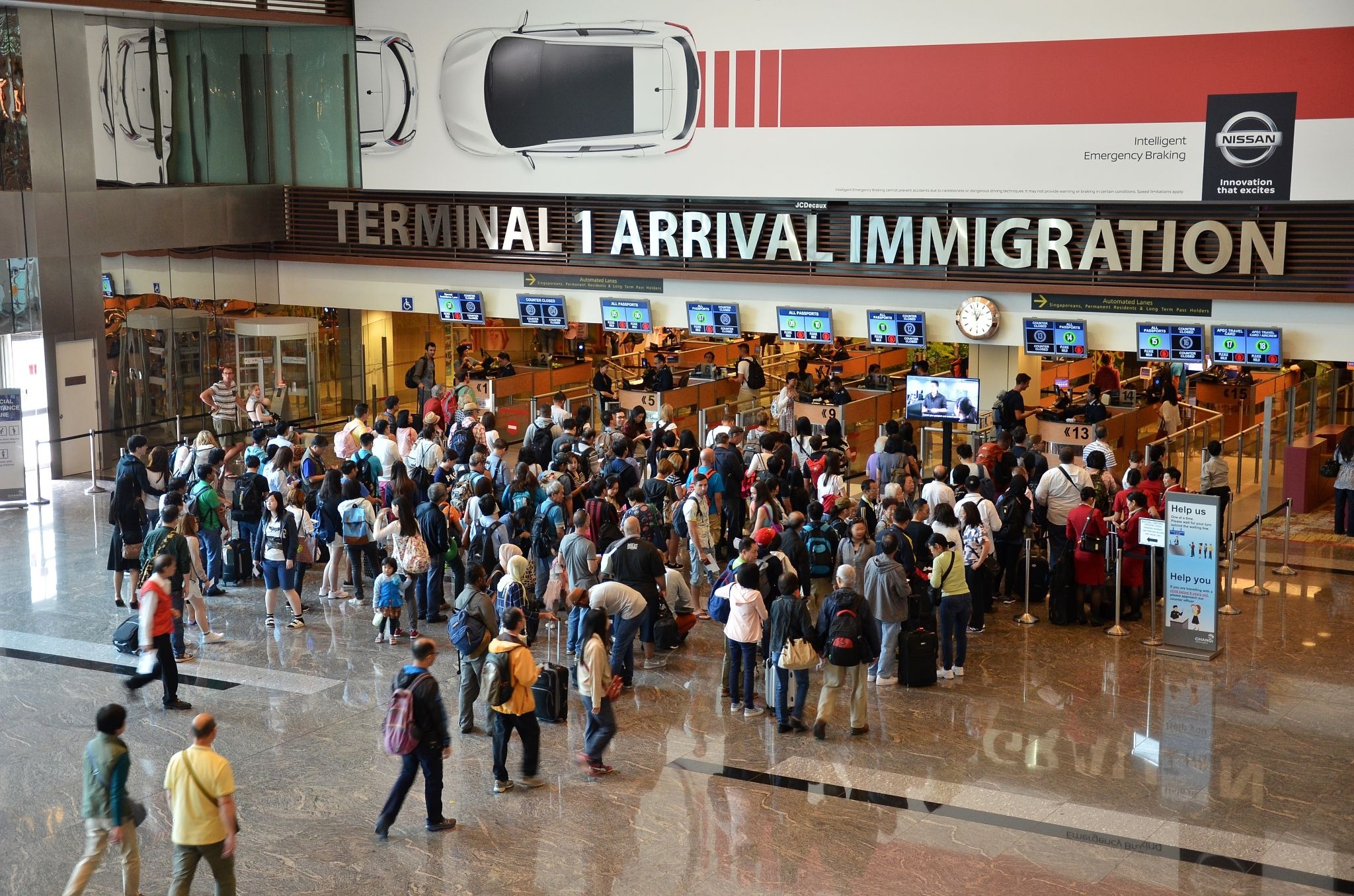
Guaranteed Entry: An eVisa is pre-approved, meaning your documents have already been vetted, minimizing the risk of denial or complication at the border desk.
Faster Airport Experience: You bypass the often lengthy and chaotic VOA queue, especially during peak seasons or with large flight arrivals.
Preparation: All documentation is verified, printed (if you choose), and ready before you even step on the flight, avoiding last-minute stress or having to scramble for cash payment.
Conclusion
The paperless revolution of travel documents in Africa has clearly made the entry easier to millions of international travelers. In case the speed factor is taken into consideration, Morocco is the obvious choice, as it is consistently able to provide a Super Rush turnaround within 1-2 days. The next country is Cameroon, which has specialized urgent services with available time 24-48 hours, but its very complex procedure of documentation requires a high level of preparation among the applicants. Egypt and the Republic of Congo, though it provides effective digital systems, takes a bit more time to process even expedited levels.After all, as a traveler, the one and two pieces of advice that are always welcome are first, to go with the pre-approved eVisa instead of the VOA so that you can be sure of getting entry and secondly, to use the expedited services and apply no less than two weeks before your planned departure. Preparation is the best way to ensure that travelling is stress free no matter the speed of the rush in any country as indicated by its advertisements.
